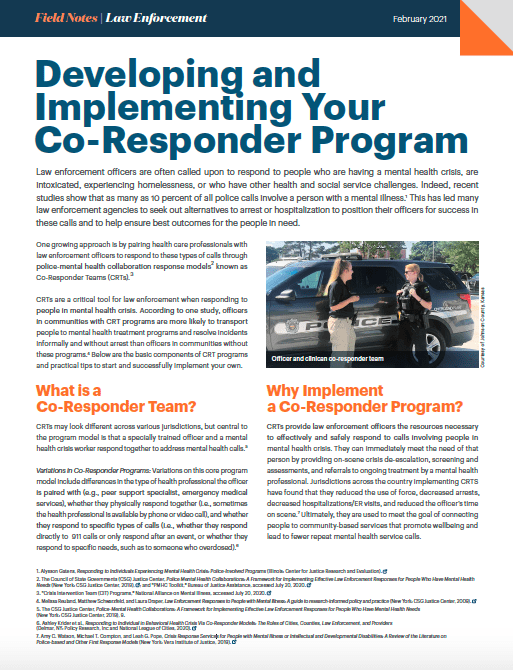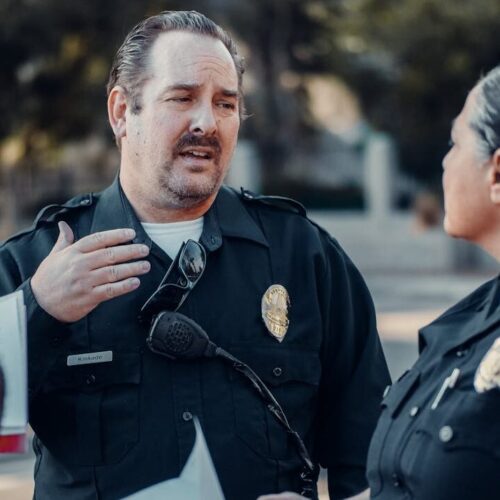Developing and Implementing Your Co-Responder Program
Developing and Implementing Your Co-Responder Program
Many law enforcement agencies are beginning to seek out alternatives to arrest or hospitalization to position their officers for success in mental health calls and to help ensure best outcomes for the people in need. One growing approach is by pairing health care professionals with law enforcement officers to respond to these calls through police-mental health collaboration response models known as Co-Responder Teams. This 2-page brief describes the basic components of co-responder programs and offers 4 practical tips to start and successfully implement your own. Photo courtesy of Johnson County, Kansas
Project Credits
Writing: Laura Fabius, CSG Justice Center
Research: Laura Fabius, CSG Justice Center
Advising: Terry Lynn, Ayesha Delany-Brumsey, CSG Justice Center
Editing: Darby Baham, Emily Morgan, CSG Justice Center
Design: Michael Bierman
ABOUT THE AUTHOR
The sharp rise in school shootings over the past 25 years has led school officials across the U.S.…
Read MoreA three-digit crisis line, 988, launched two years ago to supplement—not necessarily replace—911. Calling 988 simplifies access to…
Read More Taking the HEAT Out of Campus Crises: A Proactive Approach to College Safety
Taking the HEAT Out of Campus Crises: A Proactive Approach to College Safety
The sharp rise in school shootings over the past 25 years has…
Read More From 911 to 988: Salt Lake City’s Innovative Dispatch Diversion Program Gives More Crisis Options
From 911 to 988: Salt Lake City’s Innovative Dispatch Diversion Program Gives More Crisis Options
A three-digit crisis line, 988, launched two years ago to supplement—not necessarily…
Read More Matching Care to Need: 5 Facts on How to Improve Behavioral Health Crisis Response
Matching Care to Need: 5 Facts on How to Improve Behavioral Health Crisis Response
It would hardly be controversial to expect an ambulance to arrive if…
Read More













